Embracing the freedom to say “non!” The World as Seen by Immersing Myself in France
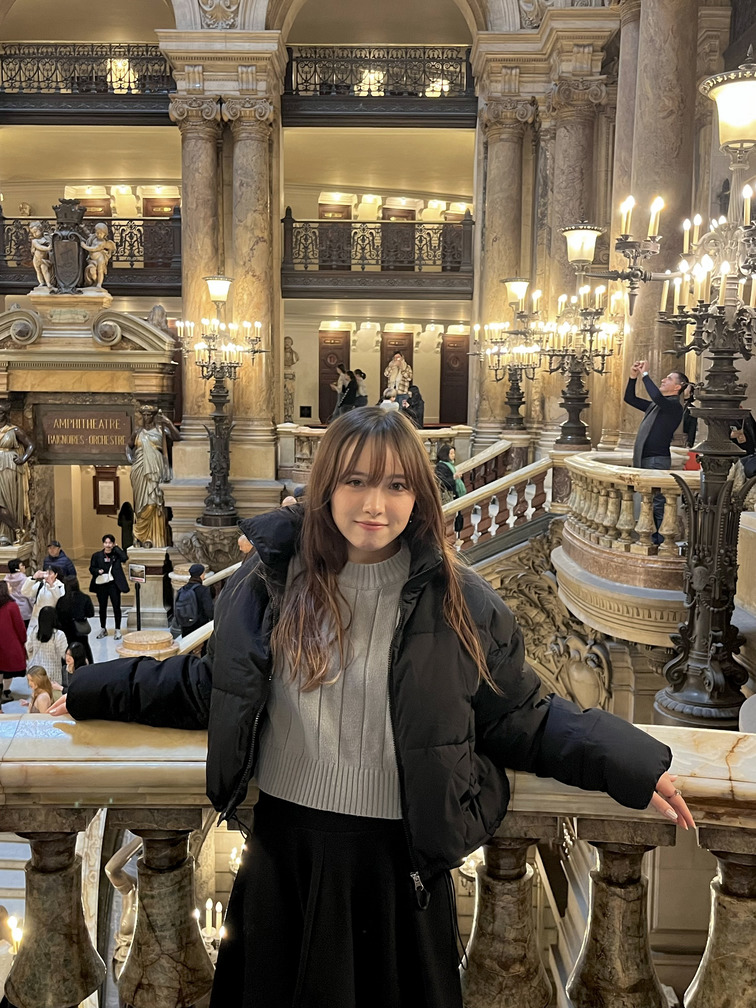
■Name: Angela Midori Yamazaki-Ransom
■Faculty/Department/Year (at time of study abroad): Department of French Studies, Faculty of Foreign Studies, 3rd year
■Period of study abroad: September 2023 - June 2024
■Place of study abroad (country/university): Institut National des Langues et Civilisations Orientales (INALCO), France
■Type of study abroad: Exchange Program
Every year, many Sophia University students study abroad in countries all over the world outside of Japan. How did they manage to find their way through the differences in languages, cultures, and lifestyles? Here are some voices of students who studied abroad.
What made you decide to study abroad?
There are three main reasons why I want to study abroad. First, I want to use the French that I have been learning since high school in a native environment and experience authentic French culture. Second, I want to broaden my horizons and gain new insights by living abroad. Third, as a linguistics student, I am interested in understanding how the Japanese language is perceived by French speakers.
How did you choose your study abroad destination (country/university)?
I knew I wanted to study standard French, so I chose France over other French-speaking countries. Within France, Paris seemed ideal. However, the weather was the key factor. Since I cannot tolerate heat, I chose Paris, a relatively northern part of France. I searched among partner universities in Paris that offered my desired field of study. Ultimately, I selected the National Institute for Oriental Languages and Civilizations (INALCO), a French national institution that specializes in language education, where I could study linguistics.
Did you have any concerns before studying abroad?
Since I had never lived away from home, not even in Japan, I was worried about whether I could live on my own in France, a country I had never visited.
Is there anything you did to prepare for studying abroad, or anything you wish you had done?
To prepare, I did what I always did and kept studying French. I didn’t change the way I studied just because I was going abroad. However, I wish I had studied Japan more in-depth, beyond what I knew as a Japanese person living in Japan, in terms of history, politics, economy, and culture. French people often ask questions about Japan that are difficult to answer unless you are very knowledgeable. There were times when I couldn’t respond.
Can you describe the atmosphere at the university and among the students?
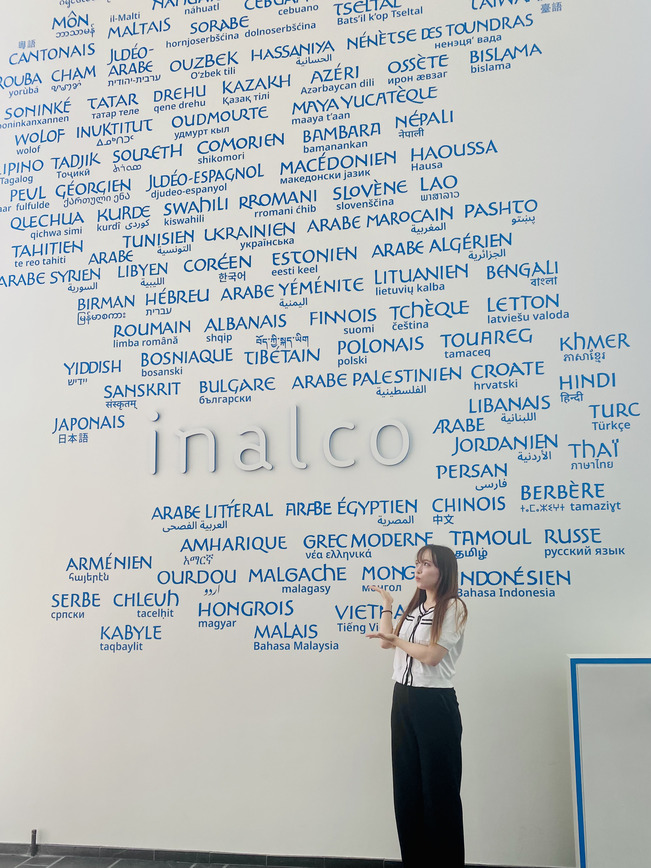
I got the impression that many students were curious about each other and other cultures. They were very motivated in class and friendly and outgoing outside of the classroom. I’m not sure if this is characteristic of the university or Paris in general, but there was an incredibly diverse mix of students in terms of race and nationality. Many students were open-minded and liberal, showing interest in the languages and cultures of various countries.
How did you expand your social circle?
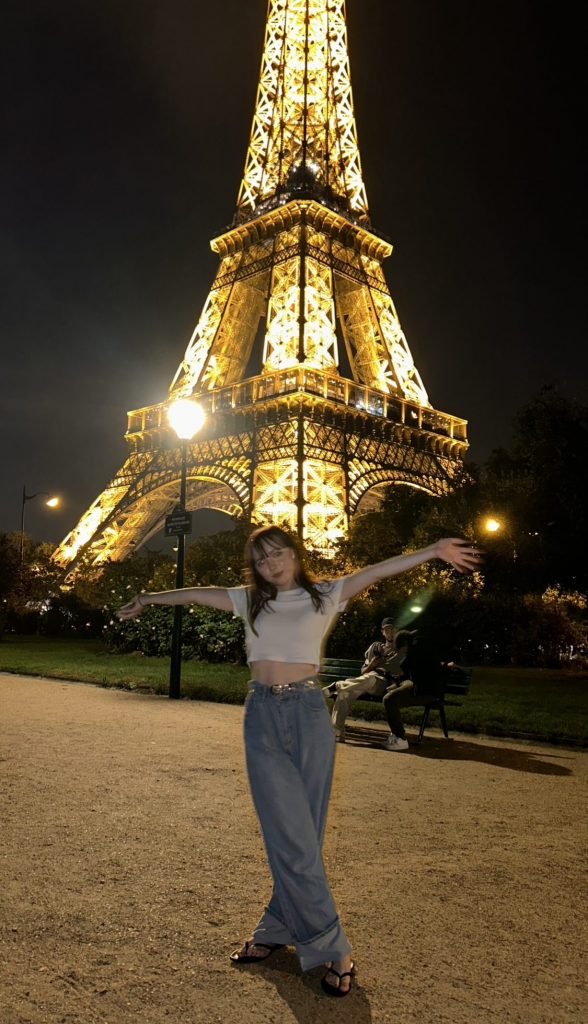
There were many opportunities: I met French students studying Japanese in the Japanese Studies department; a group of French students from various departments and years; international students from around the world in French classes for French as a Second Language; and Japanese students living in the same dormitory, and so on. There were also many chances to meet people from different backgrounds and nationalities. Since I would only be spending a few months with these people, I made a conscious effort to keep in touch with each person and stay connected.
In what ways did the classroom atmosphere, course content, and exams differ from those in Japan?
Many students were motivated and willing to ask questions during class when they didn’t understand something. Though embarrassment in the classroom wasn’t entirely absent, it was far less prominent than in Japan. In the translation class for third-year Japanese studies students, we translated texts containing Chinese characters that are rarely seen even by native Japanese speakers into French, which was quite challenging. Since the curriculum was designed for completion within three years, the pace of the classes was fast. In Japan, I felt that even if students didn’t get good grades, they could still pass if they showed that they had put in the effort. In France, however, if your test scores were not good enough, you lose the credit regardless.
What did you dedicate yourself to most outside of the classroom?
I belonged to two K-pop dance clubs, and I was the group leader of one of them. It was a great experience and cherished memory. I enjoyed dancing to music I loved and hearing and speaking a lot of everyday, casual French. This helped me expand my social circle. I also gained the courage to clearly express my opinions in French, to French people without feeling intimidated.
What did you find fascinating about your study abroad destination, and what new discoveries did you make?
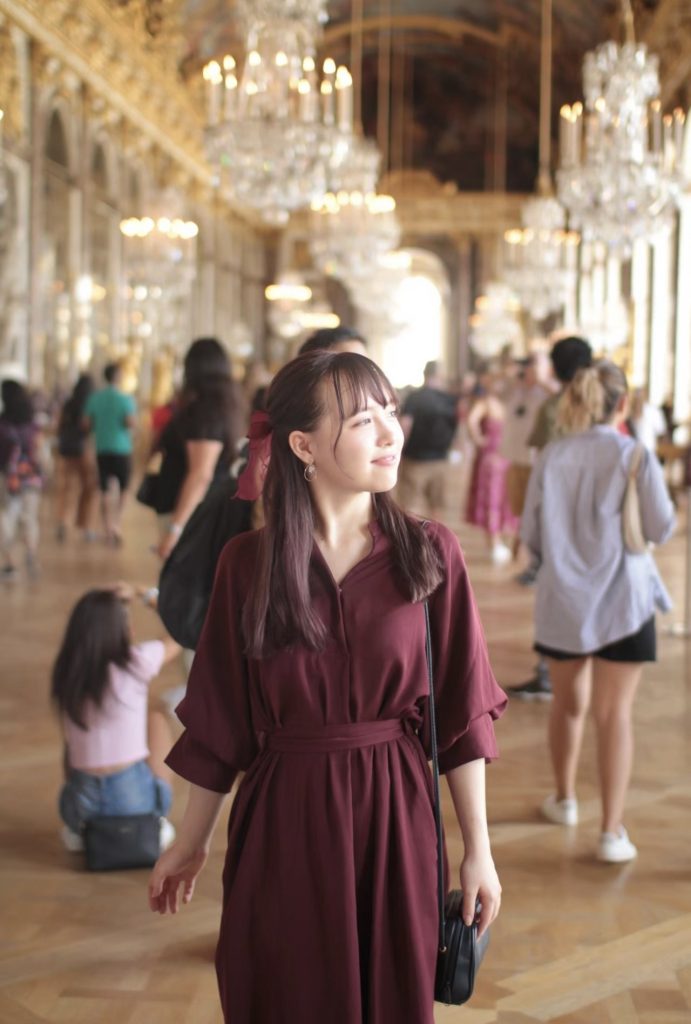
There’s a stereotype that Parisians are mean, but that’s not true at all. People were delighted to hear my imperfect French and supportive. Also, many friends were willing to help when I was in trouble. Perhaps because Paris is the nation’s capital, there were far more immigrants and foreigners than I expected.
What was the most impressive or striking event during your time studying abroad?
Once, while practicing dance outdoors with my club, another group forcefully pushed their way in and tried to take over our space. When my French friends started a heated argument with them, I thought, “This is something you just don’t see in Japan.” If this had happened in Japan, I imagined people would just think, “Some weirdos showed up. It’s annoying to give up our spot since we were here first, but let’s just move somewhere else to avoid trouble.” Seeing how French people stood up to injustice with such conviction—saying “Non!” and discussing the matter until they reached a resolution—was really impressive.
Did you encounter any difficulties while studying abroad? How did you overcome them?
When I had the flu with a fever over 104 °F, I traveled alone to a hospital in the Paris suburbs to see a Japanese doctor, which took about an hour. I was able to get an appointment, get a prescription, and recover without issue by contacting the insurance company I signed up with through my university. My friends in the same dorm also helped me a lot, and I’m very grateful for that.
How have you grown or changed in your mindset before and after studying abroad?

Before, I would back down when faced with unreasonable situations, often thinking, “It’s frightening,” or “It’s a hassle.” Now, I can firmly express my views and clearly speak up when I feel something is wrong. My confidence, courage, and stubbornness have all been shaped by this experience.
What sort of impact do you think your study abroad experience will have on your future life?
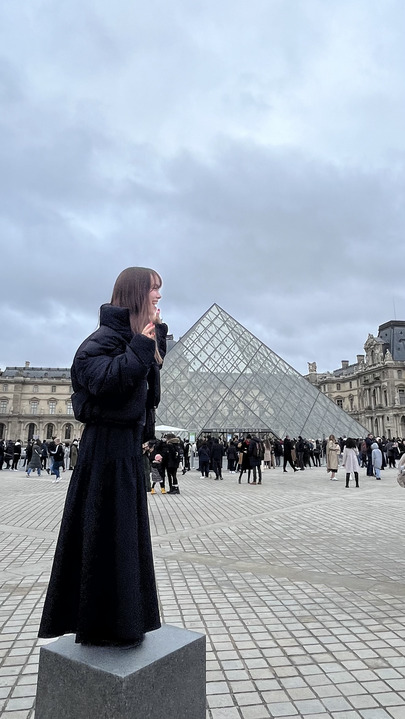
“The world is big and filled with all kinds of people and many different points of view.” I realized that knowledge gained from books or screens—understanding things in my head—is entirely different from stepping out into the world, interacting with people, and being exposed to different opinions. My mindset, thought process, and approach to things, all have evolved. Each change may be subtle, but I am certain that the shifts brought about by this experience will have a profound impact on my future.
A Message for Those Considering Studying Abroad:
You may feel anxious and hesitant to take the chance, especially since you are about to face a completely unknown world. However, the fact that it is new means many amazing experiences await you, some of which you have never seen or imagined. Isn’t that exciting?